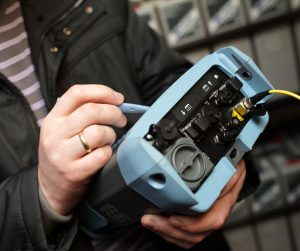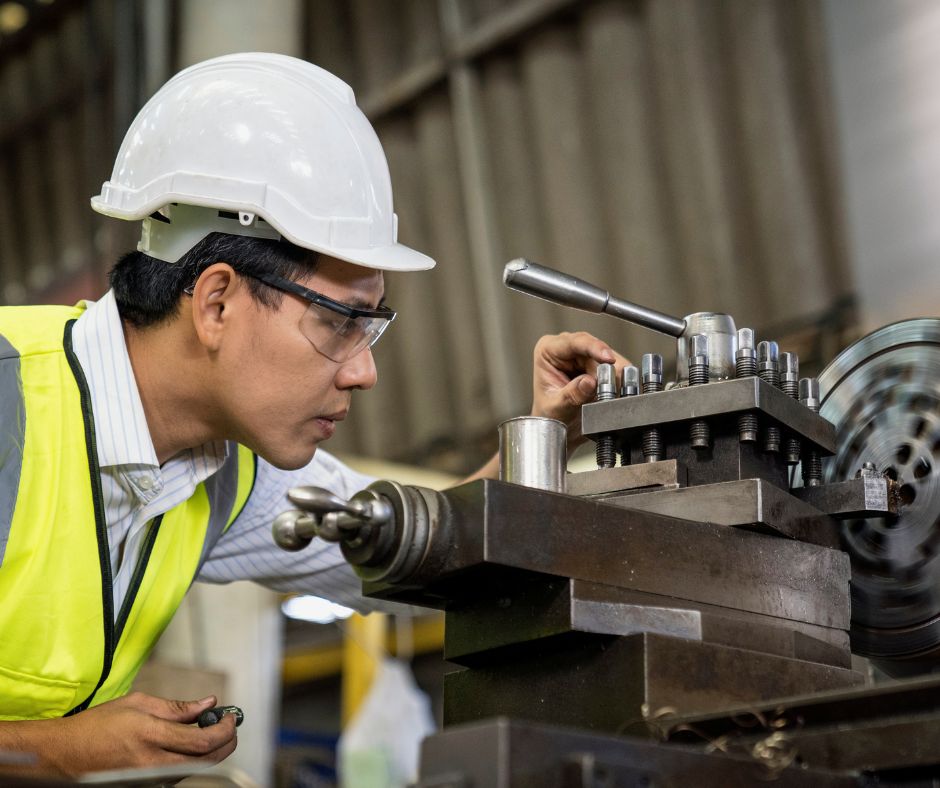Why is Calibration Important for Telecommunications Test Equipment?
 In the fast-paced world of telecommunications, maintaining reliable and accurate test equipment is essential for ensuring the quality of service, regulatory compliance, and operational efficiency. Calibration plays a vital role in this process by ensuring that the instruments used to test, measure, and monitor telecommunications systems are functioning within specified tolerances. Whether you are managing a telecommunications network or working with equipment used for installation, maintenance, and repair, understanding the importance of calibration is key.
In the fast-paced world of telecommunications, maintaining reliable and accurate test equipment is essential for ensuring the quality of service, regulatory compliance, and operational efficiency. Calibration plays a vital role in this process by ensuring that the instruments used to test, measure, and monitor telecommunications systems are functioning within specified tolerances. Whether you are managing a telecommunications network or working with equipment used for installation, maintenance, and repair, understanding the importance of calibration is key.
What is Telecommunications Test Equipment Calibration?
Telecommunications test equipment refers to the devices used to measure and verify the performance of telecom systems, including signal generators, analyzers, oscilloscopes, spectrum analyzers, power meters, and more. These instruments are used to test various parameters, such as signal strength, frequency, bandwidth, and data integrity, which are crucial to the performance of networks and communication systems.
Calibration ensures that these instruments produce accurate readings by comparing them against known, traceable standards. Over time, even the most reliable test equipment can drift from its original specifications due to environmental factors, wear and tear, or just regular use. Calibration helps correct this drift and ensures that the readings remain consistent and within the required tolerance levels.
Why Calibration Matters for Telecommunications Test Equipment
For companies that handle telecom test equipment, investing in routine calibration is crucial for the following reasons:
- Ensures Accuracy: Accuracy is essential when working with telecommunications test equipment. A small deviation in measurements can lead to faulty assessments of network performance, incorrect troubleshooting, and missed opportunities for optimization. Regular calibration ensures that your test equipment provides accurate and reliable readings every time, allowing you to make informed decisions based on precise data.
- Compliance with Industry Standards: Telecommunications is a highly regulated industry, and calibration ensures that the equipment you use meets national and international standards. Whether you are working in public safety, broadband, mobile networks, or satellite communication, calibration helps you comply with industry regulations and avoid costly fines or compliance issues.
- Optimizes Performance: Well-calibrated test equipment ensures that your telecom systems perform optimally. Regular calibration helps identify potential issues before they become significant problems, thereby allowing technicians to make necessary adjustments and prevent system failures. In this competitive industry, staying ahead of potential problems is key to maintaining service uptime and minimizing repair costs.
- Prolongs Equipment Lifespan: Properly calibrated equipment is less likely to suffer from premature failure. By ensuring that instruments are always functioning within the manufacturer’s specifications, you can reduce the risk of unnecessary repairs and increase the overall lifespan of your test equipment. This will help your organization save money and maintain the efficiency of your operations.
- Improves Troubleshooting and Maintenance: Calibration can make troubleshooting easier and more accurate. When test equipment is calibrated correctly, it provides consistent and reliable results, making it easier to diagnose faults and identify solutions. This enhances the efficiency of your maintenance team and minimizes downtime.
Best Practices for Calibration of Telecommunications Test Equipment
When seeking calibration services for your equipment, here are some important best practices to keep in mind:
- Regular Calibration Intervals: Telecommunication networks are constantly evolving, and so too is the technology that tests them. Establishing a regular calibration schedule is critical. Most experts recommend calibrating test equipment annually or more frequently, depending on the instrument’s use and the regulatory requirements in your area.
- Use of Traceable Standards: Ensure that your calibration provider uses traceable calibration standards. Traceability means that the calibration results can be linked back to internationally recognized reference standards, which creates consistency across the industry.
- Qualified Technicians: Calibration should always be performed by certified professionals who understand the specific requirements of telecommunications test equipment. Trident Calibration Labs employs technicians with specialized training to ensure that all equipment is calibrated correctly, meeting both operational and regulatory standards.
- Documentation and Reporting: Proper documentation is essential for compliance and auditing purposes. Calibration services should provide a detailed report outlining the instrument’s condition before and after calibration, as well as the measurements and any adjustments made. This documentation helps maintain traceability and supports regulatory compliance.
In telecommunications, precision and accuracy are non-negotiable. Calibration ensures that your test equipment operates within the specified standards, guaranteeing the integrity of your measurements and the performance of your network. Whether you’re managing an extensive telecom infrastructure or working with specialized testing equipment, regular calibration is crucial to avoid costly downtime, optimize performance, and comply with industry regulations.
At Trident Calibration Labs, our specialties include calibrating telecommunications test equipment with the utmost precision, using traceable standards and industry-leading techniques. Contact us today to request a free quote!
continue reading
Related Posts
Why Calibration is Vital for Businesses in the Healthcare Industry […]
Onsite vs. Offsite Calibration: Which is Best for Your Business? […]
Why Calibration is Crucial for the Manufacturing Industry For businesses […]



